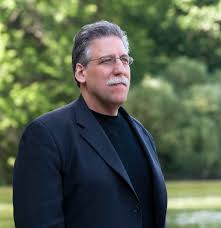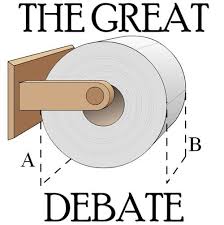As I was watching this debate a couple things struck me about all debates on the problem of suffering or evil.
 First, one should not use the problem of evil/suffering as a primary reason for or against the belief in a supreme deity. There are multiple reasons why this is a poor justification for or against the existence of God. There is a lot of evidence for the existence of God which come from other lines of inquiry, and just because we don't like the theistic answers to the problem of pain, does not negate any of these other lines of evidence. Just because you might not like the answers to the problem of pain, does not negate the evidence for God from cosmology, philosophy, science, and experience. In the same way, because you might want there to be a God who will bring justice, does not actually entail other evidence against his existence wrong. Here is a hypothetical about how this might go:
First, one should not use the problem of evil/suffering as a primary reason for or against the belief in a supreme deity. There are multiple reasons why this is a poor justification for or against the existence of God. There is a lot of evidence for the existence of God which come from other lines of inquiry, and just because we don't like the theistic answers to the problem of pain, does not negate any of these other lines of evidence. Just because you might not like the answers to the problem of pain, does not negate the evidence for God from cosmology, philosophy, science, and experience. In the same way, because you might want there to be a God who will bring justice, does not actually entail other evidence against his existence wrong. Here is a hypothetical about how this might go:Atheist: God does not have an adequate answer to the problem of evil. So he doesn't exist!
Theist: God does exist, so he has an adequate answer to the problem of evil.
Atheist: But there can be no adequate answer for suffering, so there is no God.
Theist: Heaven is an adequate answer for suffering.
Atheist: No, its not!
Theist: Yes it is!
 Very quickly, this digresses into a subjective preference about whether the answers given are adequate or not. The logical problem of evil has fallen out of favor for this exact reason. There could be a logical reason why God could allow pain, but whether or not we accept it comes down to whether or not we believe there is a God and if he is good. There are better lines of evidence for/against God, and we might want to ask about the problem of evil after we have decided about whether or not God actually exists.
Very quickly, this digresses into a subjective preference about whether the answers given are adequate or not. The logical problem of evil has fallen out of favor for this exact reason. There could be a logical reason why God could allow pain, but whether or not we accept it comes down to whether or not we believe there is a God and if he is good. There are better lines of evidence for/against God, and we might want to ask about the problem of evil after we have decided about whether or not God actually exists.The second observation I had from the debate was how often people mistake the ontological/metaphysical for the epistemological. At one point Dr. Brown made a remark about the meaning of life if God did not exist. The comment was made to point out, that if God does not exist, then there is no ultimate meaning to suffering or kindness or life in general. To this point, Dr. Ehrman said Dr. Brown's assertion was "obscene" and offensive. He commented that he, himself, had much meaning in his life even though he did not believe in God. Ehrman's answer shows he was confused about Dr. Brown's point.
I am not sure theists have done a good job explaining ontological issues like these yet. And when we try to use them, we often let the non-theist get away with changing from the ontological to the epistemological in their answer.
Let me explain what I mean. The ontological is the way reality really is, while the epistemological is our knowledge of things. When Brown argued there would be no meaning without God, he was making an ontological claim He was saying ultimate meaning cannot exist if there is no God, because everything will end in the end, and we will cease to exist. Anything we do in this life will be ultimately worthless, because we do not have a standard of worth to measure by, and in the end, everything will be destroyed.
Ehrman answered with an epistemological claim, specifically saying he knew his life had meaning. But this does not answer Brown's assertion that there is no meaning without God. Instead, this is actually an implicit admission as to Ehrman's intuitive knowledge of God, because he knows his actions have true value.
Theists need to learn how to explain this better. We need to learn to include ourselves in the argument. We are not saying atheists have no value because they don't believe in God. We are saying, that neither the atheist, nor the theist, has any ultimate value if there is no transcendent grounds to give us worth. An atheist or a theist who does work for the poor, ultimately does nothing, without a God in existence in reality, because it will all be for naught when it is all destroyed. We are not saying your belief in atheism means you do not have worth, we are saying neither you nor I have any worth if we are all products of natural processes. Mother Nature does not care about you or I, because Mother Nature is really mother nature!!!
 But if there is a God, then both the theist and the atheist have value, because of the transcendent nature of the Creator. Inventors create with a purpose, and the Creator is no different. He has a purpose for both the atheist and the theist.
But if there is a God, then both the theist and the atheist have value, because of the transcendent nature of the Creator. Inventors create with a purpose, and the Creator is no different. He has a purpose for both the atheist and the theist.Overall, I the debate was enjoyable and thought provoking. In the end, is there much more you can ask for in a debate?
If you are interested in listening to the debate, apologetics315.blogspot.com has already linked to an MP3 of the event.



3 comments:
Great discussion of the debate. It's always more interesting when both sides offer up logical arguments and interact with the claims of the opposition. It sounds like Drs. Brown and Ehrman did just that.
Thanks for the clarification about the ontological versus epistemological.
"
Theists need to learn how to explain this better. We need to learn to include ourselves in the argument. We are not saying atheists have no value because they don't believe in God. We are saying, that neither the atheist, nor the theist, has any ultimate value if there is no transcendent grounds to give us worth. An atheist or a theist who does work for the poor, ultimately does nothing, without a God in existence in reality, because it will all be for naught when it is all destroyed. We are not saying your belief in atheism means you do not have worth, we are saying neither you nor I have any worth if we are all products of natural processes. Mother Nature does not care about you or I, because Mother Nature is really mother nature!!!"
Awesome. This is exactly what we need to do with atheists. Show them that there is no objective morality or meaning without a Designer.
Thanks for the comment Knight
Post a Comment